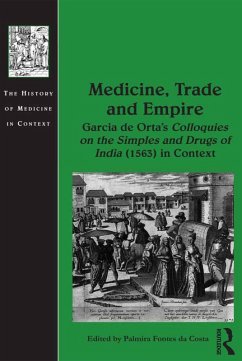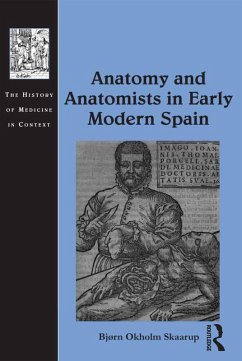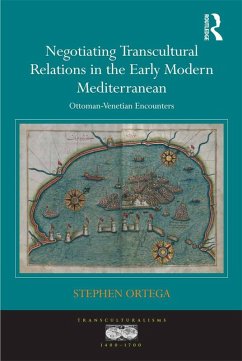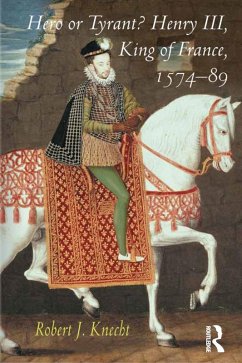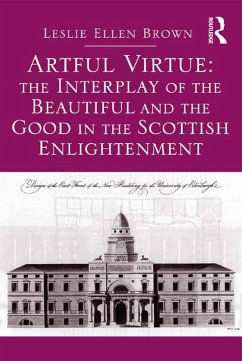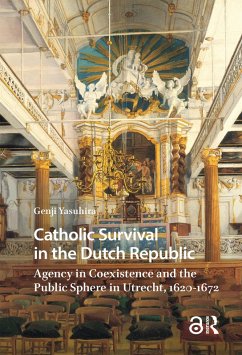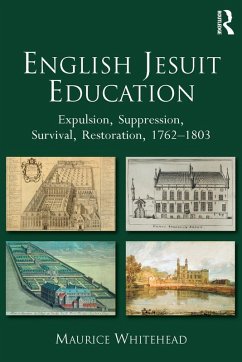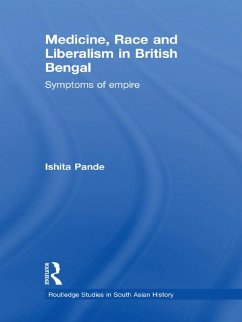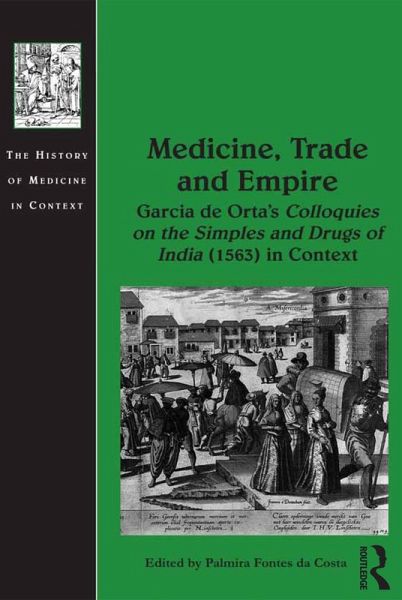
Medicine, Trade and Empire (eBook, PDF)
Garcia de Orta's Colloquies on the Simples and Drugs of India (1563) in Context
Versandkostenfrei!
Sofort per Download lieferbar
39,95 €
inkl. MwSt.
Weitere Ausgaben:

PAYBACK Punkte
20 °P sammeln!
Garcia de Orta's Colloquies on the Simples and Drugs of India (1563) was one of the first books to take advantage of the close relationship between medicine, trade and empire in the early modern period. The book was printed in Goa, the capital of the Portuguese empire in the East, and the city where the author, a Portuguese physician of Jewish ancestry, lived for almost thirty years. It presents a vast array of medical information on various drugs, spices, plants, fruits and minerals native to India or adjoining territories. In addition, it includes information concerning indigenous methods of...
Garcia de Orta's Colloquies on the Simples and Drugs of India (1563) was one of the first books to take advantage of the close relationship between medicine, trade and empire in the early modern period. The book was printed in Goa, the capital of the Portuguese empire in the East, and the city where the author, a Portuguese physician of Jewish ancestry, lived for almost thirty years. It presents a vast array of medical information on various drugs, spices, plants, fruits and minerals native to India or adjoining territories. In addition, it includes information concerning indigenous methods of healing as well as a far-reaching assessment of ancient and modern authors on Asian materia medica. Orta's book had a market in Asia but was particularly valuable to a European audience. It soon attracted the attention of various European authors and printers by providing the basis for adaptations, commentaries and editions in various languages, prompting a successful and complex trail of medical knowledge in transit. Authored by an interdisciplinary team of prominent international scholars, the volume takes into account recent historiographical trends and provides a contextualized and innovative analysis of the histories and reception of the Colloquies. It emphasizes the value of the work to historians today as a symbol of the impact of geographical expansion and globalization in a sixteenth-century medical world.
Dieser Download kann aus rechtlichen Gründen nur mit Rechnungsadresse in A, B, BG, CY, CZ, D, DK, EW, E, FIN, F, GR, HR, H, IRL, I, LT, L, LR, M, NL, PL, P, R, S, SLO, SK ausgeliefert werden.




